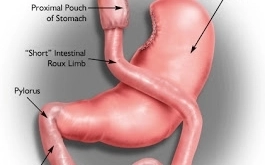The Sunshine Vitamin
by Kelly Morris
Another reason to love sunny days: free vitamins (sort of).
Vitamin D is sometimes referred to as the “sunshine vitamin” because our body can make vitamin D in response to sunlight. Most people, whether they’ve had weight loss surgery or not, don’t get enough vitamin D just from exposure to sunlight, though, and according to the Vitamin D Council, vitamin D deficiency is extremely common these days. Obesity increases your risk for vitamin D deficiency, and people that have malabsorptive weight loss surgeries like RNY and DS are at even greater risk.
Last month we talked about calcium for weight loss surgery folks and I want to talk about vitamin D now because we need a good level of vitamin D in our blood in order to absorb calcium properly. It’s not necessary to take vitamin D with your calcium supplements, but it is necessary to maintain a good vitamin D level. According to the National Institutes of Health, Vitamin D deficiency can lead to osteoporosis and even rickets. Vitamin D also helps maintain a good blood pressure, helps with the secretion of insulin, and helps the immune system function properly. Symptoms of vitamin D deficiency include muscle pain and weakness, depression, and fatigue. Many people do not experience any noticeable symptoms until they have a severe deficiency, however.
D2 vs. D3
The Vitamin D Council explains that there are two types of vitamin D, D2 and D3. D2, or ergocalciferol, must be converted to D3, or cholecalciferol, in the body. It takes a lot of D2 to make a little D3. Therefore, taking D3 is the best way to raise or maintain your vitamin D level.
“Dry” D3 vs. D3 in Oil
Vitamin D3 supplements sometimes come in softgels, those pills that look like little footballs and have oily stuff inside. Vitamin D is a fat soluble vitamin, so most people absorb it very well when it’s in oil. However, people that have had Roux-en-Y gastric bypass surgery or duodenal switch surgery malabsorb fats, which helps them lose weight. That means they don’t absorb vitamins in oil as well as dry vitamins. “Dry” D3 simply refers to D3 that is not in oil. It might be a dry tablet or a capsule filled with dry powdery stuff.
How Much to Take
Now that you know how important vitamin D is, you probably want to know how much to take. I wish there was an easy answer to this question but unfortunately, there’s not. The amount of vitamin D3 people need in order to maintain that level varies widely from person to person and depends on a number of factors, including how much you’re exposed to sunlight, your age, weight, what type of weight loss surgery you’re had, and even your genes. (Nik also pointed out she was told by her doctor that African-Americans are also at risk for Vitamin D deficiency because of higher levels of melanin in the skin.)
The best way to know if you’re taking enough vitamin D3 is by having regular blood tests to monitor your vitamin D level. The Linus Pauling Institute of Oregon State University recommends maintaining a vitamin D level of 80 nmol/L to prevent problems related to vitamin D deficiency.
The Vitamin D Council reports that most people that haven’t had weight loss surgery need about 5,000 IU D3 daily to maintain a healthy vitamin D level. People that have had weight loss surgery are likely to need more. Since vitamin D is a fat soluble vitamin, it’s possible to take too much and develop vitamin D toxicity, although that’s not very common. If you’re taking large doses of D3, it’s very important to get regular blood tests to monitor you level to make sure it doesn’t get too high.
We thought we would introduce you to the new guy in Kelly’s life. This beautiful creature is Isaac. He’s long and sleek. Smart. Loves to rip stuffed animals to shreds. Bit of a drooler. And hella cute!
If you have any vitamin questions for Isaac’s human (also know as Kelly!), email bariatricfoodie@yahoo.com.
 Bariatric Foodie Play with your food
Bariatric Foodie Play with your food




I would add one comment to the how much. When?
It is best taken in the AM, preferably at breakfast time as opposed to later in the day or evening.
Also, at the Water Cures organization, we are curious if the hydration status helps the body convert sun to the necessary vitamin D.
It is on our list of things to study for the future.
http://www.watercures.org/sun-vitamin-d.html
http://www.watercures.org/vitamin-d-depression-and-water-cures.html
Good heath to you and yours.